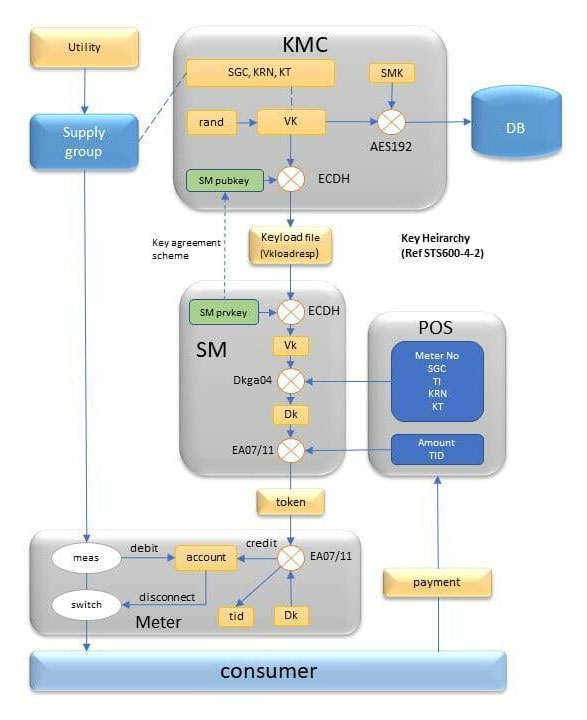INTRODUCTION TO THE STANDARD TRANSFER SPECIFICATION (STS)
HISTORY AND PURPOSE
The STS Association, as the custodian of the STS prepayment metering technology standard was founded in 1997. The key operational objectives of the association are to maintain the necessary infrastructure; promote the technology internationally and further develop the standard to meet emerging international demands for additional functionality. The Association ensures interoperability between system components from different manufactures of prepayment meter and vending systems by accrediting and maintaining a list of test laboratories that ensure compliance to STS standards. The Association manages the availability of encrypted vending keys to manufacturing members via its key management centres, and ensures consistent use of manufacturer codes as well as meter serial numbers.
In keeping with the fast progressive technology, STS Association has established Working Groups for on-going standard enhancement projects.
Working Groups, comprising technical experts from STS Association member organizations and the industry are currently involved in a number of projects related to the ongoing maintenance of the standard, as well as new developments such as:
- Enhancements to the encryption key management system to allow for distributed key management using multiple key management centres worldwide;
- The definition of a currency token specification to handle a wide variety of currencies.
- The introduction of more secure encryption and decryption algorithms, as well as decoder key generation algorithms.
- The definition and publication of a code of practice for the Token ID rollover, along with the introduction of 3 distinct base dates.
- The publication of Editions 2 and 3 of the IEC 62055-41 standard containing revisions and added functionality.
- Harmonisation of the STS into the DLMS/COSEM protocols to allow the STS to be used in the Smart Meter markets.
- Preparation work for the introduction of future enhancements of the IEC standards.
Further information about the Standard Transfer Specification and the STS Association may be found on the Association's website www.sts.org.za or by contacting the Secretariat.
Secretariat: Mr. Jean Venter, c/o Van der Walt & Co.
P.O. Box 868, Ferndale, 2160, Johannesburg, South Africa.
Tel: +2711 061 5000
SYNOPSIS

